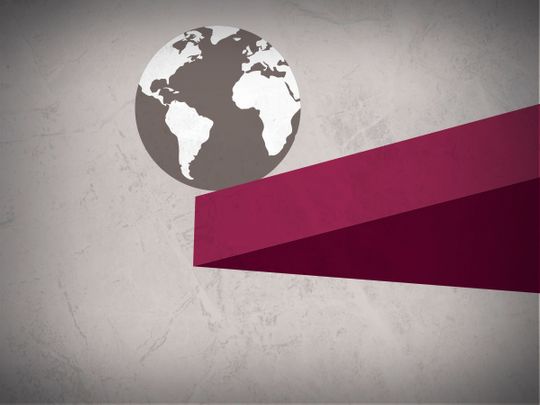
There was little interest among citizens of the Middle East in the 26th Conference of the Parties to the UN Framework Convention on Climate Change, better known as COP26; a two-week event held in Glasgow, UK. More than 100 nations participated in the annual event — was not held last year because of COVID-19 — and even as a majority committed to reducing methane emissions by 2030, hard-line environmentalists had dubbed the event a failure.
Why? This was the 26th summit to be held since 1995 and few commitments have been kept by countries; namely the key polluters responsible for the greenhouse effect. In fact the two main contributors to global CO2 emissions, Russia and China; who together produce roughly 32 per cent, have skipped the event.
Few scientists, if any, contest the fact that the greenhouse gases are responsible for extreme climate change. But the issue has become politicised, especially in the United States. The populist former US President Donald Trump had attacked science and planted doubts among his followers of any relationship between using fossil fuel and climate change. It is a sad reality that his conspiracy theories have now been adopted by key Republican lawmakers and politicians. The US is seen as a major force in leading efforts to reduce CO2 emissions.
For our region the prospects are scary. According to science, the Middle East is twice as likely to be affected by climate change in the coming few years than any other region. Home to hundreds of millions of people, the region contributes little to the greenhouse effect but still it stands to be the most afflicted by it. In fact when it comes to meeting the one key challenge, distinguished scientists, who are experts in their field, are sceptical about the goal of limiting global warming to 1.5 degrees Celsius.
But what does that mean to the region as a whole? Individual countries may be able to reduce dependence on fossil fuel but at a cost. The UAE’s peaceful nuclear programme is a case in point. Last week the Emirates Nuclear Energy Corporation (ENEC) announced the completion of the construction of the third reactor at the Barakah Nuclear Energy Plant. It will go online, delivering clean energy, in 2023. The third unit will join Unit 1 which is fully operational and Unit 2 which is connected to the UAE grid and undergoing testing while raising power levels.
While the Saudi sponsored Middle East Green Initiative, launched last month, has underlined an increasing official awareness of the climate change challenge and highlighted willingness to make the transition to green energy, the reality is that regional turmoil and the effects of climate change will make it difficult for some countries in the region to meet their commitments.
Climate change and global warming will deepen the bleak geopolitical realities of the region. Rising temperatures, especially in the Gulf States, Iran and Iraq, will affect peoples’ lives but may also disrupt economic cycles. Drought and water shortages have triggered protests in Iran last summer. The historic drop in water levels in Iraq’s main rivers is already affecting the lives of millions but more importantly it is creating tensions between Iraq, on the one hand, and Iran and Turkey on the other.
The East Mediterranean and the Gulf region are already witnessing the effects of a chaotic and unpredictable climate change; from destructive cyclones to record high temperatures and from poor rainy seasons to horrendous forest fires. Extreme weather conditions are likely to become the norm for the people of the region.
And yet there is little public attention given to this existentialist challenge. A majority of the region’s citizens live in countries witnessing internal challenges: inflation, unemployment, poverty, sectarian tensions, and proxy wars, among others. Unless the leaders of this region realise that climate change is a common challenge requiring collective action, little will change. The Saudi initiative was an important milestone, but much more, in terms of sustainable action, is needed at the regional level.
It is ironic that while the region contributes little to global warming it is now in the forefront in paying the price. To meet the challenge of limiting the rise in temperatures to 1.5 degrees Celsius, industrialised countries that contribute the most to the global CO2 level must commit to decarbonisation and within short deadlines.
Notably the demand for oil and coal remains high in Western countries and is yet to reach its peak in a few years. That gives the region precious time to invest in green energy, which is already taking place in some countries, especially the UAE. But for the rest of the world, time is an enemy and it might take a major environmental catastrophe to happen before leaders realise that they have no option but to act.
Osama Al Sharif is a journalist and political commentator based in Amman







